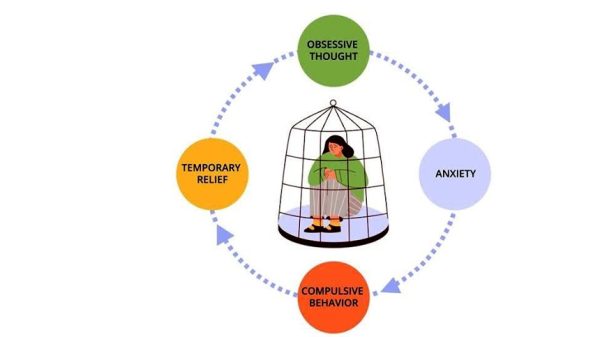Not merely a quirk: OCD Awareness Week sheds light on disorder

- Update Time : Thursday, 12 October, 2023, 06:23 pm
- 88 Time View

Online Desk: Obsessive-Compulsive Disorder (OCD) is not merely a quirk or a penchant for neatness; it’s a debilitating mental health condition that affects people of all ages and backgrounds. As part of OCD Awareness Week, activists, organisations, and healthcare professionals are joining forces to debunk misconceptions and promote understanding about this often misunderstood disorder, reports CNN.Matthew Antonelli, interim executive director of the International OCD Foundation, emphasized that OCD Awareness Week aims to uncover the truths about living with OCD and the hope that treatment can provide. Antonelli, who personally experienced the challenges of OCD, believes that the condition should not control one’s life, and that with effective treatment and medication, individuals can regain control and improve their well-being.
Obsessions and compulsions
OCD is a chronic mental health disorder characterised by the presence of obsessions and compulsions. Obsessions involve unwanted, intrusive thoughts, urges, or images that lead to intense feelings of stress, anxiety, or disgust. Compulsions, on the other hand, are behaviours individuals engage in to alleviate the distress caused by obsessions.
These obsessions often recur and feel beyond the person’s control, leading individuals with OCD to rely on compulsions as a temporary escape. While treatment can help manage obsessions and compulsions, stress, life changes, or hormonal shifts can exacerbate symptoms, according to Stephanie Woodrow, clinical director of the National Anxiety and OCD Treatment Center, said the report.
OCD is not a ‘personality quirk’
Misconceptions about OCD abound, with some people labeling it as a personality quirk or adjective for neurotic behaviour. However, Woodrow emphasizes that OCD is a serious disorder that can significantly impact a person’s life, as well as the lives of their loved ones, added the report. Contrary to popular belief, OCD is not limited to cleanliness and organisation. It encompasses various manifestations, from obsessions related to sex, religion, contamination, romantic relationships, to violence. Intrusive thoughts can be frightening, such as fearing harm to loved ones or crossing a bridge in one’s car. It’s essential to note that individuals with OCD are not dangerous, and their intrusive thoughts do not indicate a risk of carrying out the actions they fear. Instead, these thoughts typically revolve around what matters most to them, such as safety and protecting loved ones, the report also said.
How to get help
Misconceptions about OCD often lead individuals to feel isolated and hesitant to seek treatment. However, OCD is highly treatable. Antonelli recommends a combination of therapies, medications (usually serotonin reuptake inhibitors), and exposure and response prevention therapy (ERP) as effective treatment options. ERP gradually exposes individuals to their obsessions in a safe environment. Antonelli and Woodrow stressed that professional guidance is crucial, as treatment strategies are most effective when tailored to each individual’s specific needs. Despite the challenges of living with OCD, there is hope and help available for those who seek it, making this OCD Awareness Week an essential opportunity to raise awareness and support those affected by the disorder, said the report.
















